“`html
Unveiling the rich tapestry of experimental music movements reveals a dynamic world where artists challenge musical norms and redefine sonic experiences. From the abstract compositions of the early avant-garde to contemporary blends that defy traditional genres, experimentalism in music serves as a catalyst for creative breakthroughs and social commentary. This article delves into the characteristics, genres, and impact of experimental music, highlighting influential figures like the pioneers of experimentalism and the trailblazing musicians who continue to push boundaries. We explore the historical and modern experimental music movements, asking key questions such as “What is an example of experimental music?” and “Who is the queen of experimental music?” By examining these elements, we provide insights into how experimental musicians fuse innovation with tradition, continually reshaping our understanding of music’s limitless potential.
“`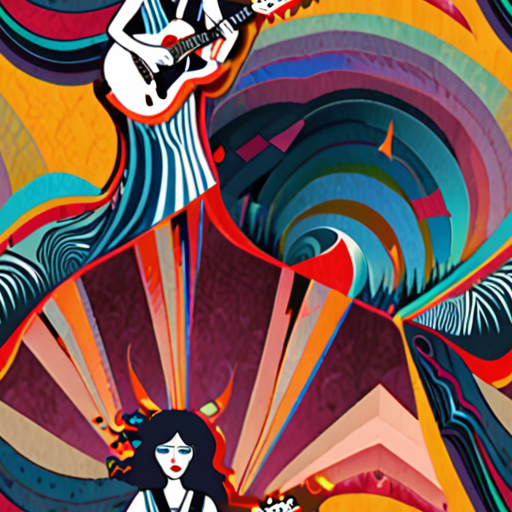
Example of Experimental Music
Experimental music encompasses a broad spectrum of unconventional sounds and styles, often pushing the boundaries of traditional music composition.
- Laurie Anderson’s work, for instance, frequently incorporates elements of noise, spoken word, and visual arts, exemplifying the intersection of music and multimedia.
- Chou Wen-chung’s compositions often blend traditional Chinese instruments with Western classical music, resulting in a unique fusion of Eastern and Western musical traditions.
- Steve Reich’s minimalist approach to music, characterized by repetitive patterns and gradual changes, has had a significant influence on the development of experimental music.
- Martin Scherzinger’s work often explores the relationship between music and mathematics, incorporating mathematical concepts and algorithms into his compositions.
- Rdiger Meyer’s music frequently features extended instrumental techniques and unconventional sound sources, expanding the possibilities of what can be considered “music.”
Abstract Hip Hop’s Perspective
As a platform dedicated to exploring the world of hip hop music, art, and culture, we recognize the importance of experimentation and innovation in shaping the genre.
- We feature blog posts, artist interviews, music reviews, and in-depth articles on the latest trends in the abstract and experimental hip hop scene.
- Our emphasis on avant-garde production techniques, spoken word, jazz, funk, and electronic influences offers readers a unique insight into the underground hip hop movement.
- We serve as a hub for hip hop enthusiasts looking to explore the genre’s more unconventional sounds and ideas.
Competitors and Industry Insights
Other notable platforms and artists in the experimental music scene include:
- Resident Advisor , a leading online magazine covering electronic music and festivals.
- Pitchfork , a prominent music publication featuring news, reviews, and interviews.
- Thump , Vice’s music channel covering electronic music, festivals, and culture.
These platforms and artists offer valuable perspectives and insights into the world of experimental music, highlighting the diversity and creativity of the genre.
What Genre is Experimental Music?
Experimental music is an umbrella term for a diverse array of contemporary music styles, encompassing everything from classical and jazz to electronic music.
- The genre diverges significantly from traditional forms of popular music in its composition, performance, and production.
- Experimental music often incorporates unconventional sounds, instruments, and recording techniques to push the boundaries of what is considered “music.”
Subgenres of Experimental Music
- Avant-Garde Music: Characterized by its rejection of traditional musical structures and conventions, avant-garde music often features dissonance, atonality, and experimentation with sound.
- Electronic Music: Encompasses a broad range of styles, from ambient and downtempo to techno and trance, often featuring synthesized sounds and digital production techniques.
- Free Improvisation: A style of music that emphasizes spontaneity and creativity, often involving extended instrumental techniques and unconventional sounds.
- Glitch Music: A subgenre characterized by its use of distorted, manipulated, or glitchy sounds, often created through digital audio workstations or software plugins.
Notable Experimental Musicians
- Karlheinz Stockhausen: A German composer known for his pioneering work in electronic music and avant-garde composition.
- John Cage: An American composer and philosopher who explored the possibilities of silence, indeterminacy, and chance operations in music.
- Throbbing Gristle: A British industrial music group that pushed the boundaries of noise, electronics, and performance art in the late 1970s and early 1980s.
- Aphex Twin: A British electronic musician and producer who has experimented with a wide range of styles, from ambient and IDM to breakcore and drum and bass.
Conclusion
Experimental music is a constantly evolving and diversifying field, pushing the boundaries of what we consider “music” and challenging our perceptions of sound and creativity.
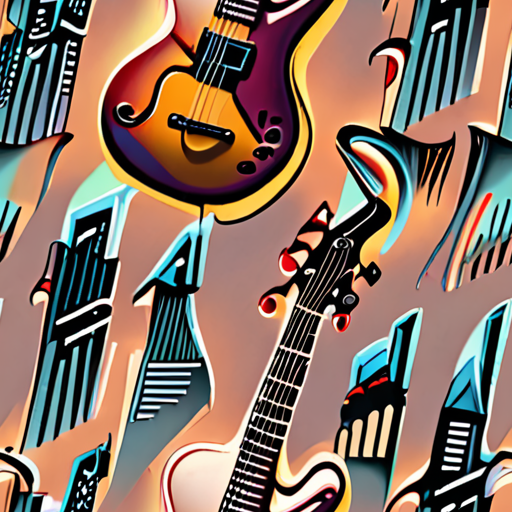
What’s the Point of Experimental Music?
As a fan of abstract and experimental hip hop, I’ve always been fascinated by the idea of pushing the boundaries of what we consider “music.” Experimental music is all about challenging traditional structures and inviting artists to think outside the box.
- The beauty of experimental music lies in its ability to evoke emotions and spark imagination. By breaking free from conventional norms, musicians can create something truly unique and innovative.
- Experimental music often incorporates elements from various genres, such as ambient, noise, and electronic music. This fusion of styles allows artists to tap into new sonic possibilities and create a distinctive sound.
- One of the most significant aspects of experimental music is its ability to inspire creativity and self-expression. By embracing uncertainty and taking risks, musicians can unlock new levels of artistic expression and push the limits of what’s possible.
Why is Experimental Music Important?
Experimental music plays a vital role in shaping the future of music and inspiring new generations of artists. By challenging traditional norms and exploring new sounds, musicians can:
- Pioneer new genres and styles, influencing the direction of music as a whole.
- Push the boundaries of what’s considered “acceptable” in music, expanding our definition of what’s possible.
- Inspire others to take risks and experiment with their own creative processes, fostering a sense of community and collaboration among musicians.
Embracing the Unknown
Experimental music is all about embracing the unknown and taking risks. By doing so, musicians can create something truly original and meaningful. As fans, we can appreciate the effort and dedication that goes into crafting these innovative sounds, and support artists who dare to challenge the status quo.
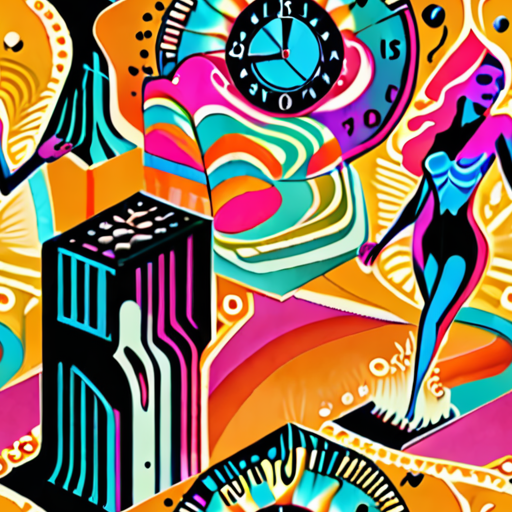
The Queen of Experimental Music
Icelandic singer Björk, known for her eclectic and innovative style, has been referred to as the queen of experimental music.
- Björk’s music often incorporates elements of electronic, classical, and folk genres, making her a pioneer in the experimental music scene.
- Her unique sound has influenced a generation of musicians and continues to inspire artists today.
- Björk’s ability to push boundaries and challenge conventional norms has earned her a reputation as a true innovator in the music industry.
Experimental Music Defined
Experimental music is a genre characterized by its use of unconventional sounds, instruments, and recording techniques.
- Experimentation can involve pushing the limits of traditional musical structures and forms.
- It may also incorporate elements of noise, dissonance, and other unconventional sonic elements.
- Experimental music often challenges listeners’ expectations and encourages them to think outside the box.
Other Notable Artists in the Genre
While Björk is widely regarded as the queen of experimental music, there are many other notable artists who have made significant contributions to the genre.
- Kraftwerk, a German electronic music group, is known for their influential work in the development of synth-pop and electronic music.
- Throbbing Gristle, a British industrial music group, was a key part of the early punk and post-punk movements.
- Oneohtrix Point Never, an American electronic musician, is known for his experimental and avant-garde approach to music production.
Conclusion
Björk’s innovative spirit and willingness to take risks have cemented her status as the queen of experimental music.
The Queen B of Music
Beyoncé is widely regarded as the Queen B of music, known for her captivating stage presence, powerful vocals, and trailblazing impact on the entertainment industry.
- Rise to Fame: Beyoncé rose to fame as the lead singer of R&B girl group Destiny’s Child, which became one of the best-selling girl groups of all time.
- Solo Career: In 2001, Beyoncé embarked on a highly successful solo career, releasing critically acclaimed albums such as “Crazy in Love” and “B’Day.”
- Awards and Accolades: Throughout her career, Beyoncé has won numerous awards, including 28 Grammy Awards, making her one of the most awarded artists in Grammy history.
- Cultural Impact: Beyoncé’s influence extends beyond music, with her performances often incorporating elements of dance, theater, and visual art, cementing her status as a true entertainer.
Competitors and Peers
While there are several talented female artists who could be considered among the best in the industry, some notable peers of Beyoncé include:
- Katy Perry: Known for her catchy pop songs and energetic live performances, Katy Perry has built a massive fan base and achieved significant commercial success.
- Rihanna: A versatile artist who has explored various genres, including pop, rock, and hip-hop, Rihanna has become a household name and a fashion icon.
- Ariana Grande: With her powerful vocals and chart-topping hits, Ariana Grande has established herself as a leading figure in the pop music landscape.
Abstract Hip Hop’s Perspective
As a platform dedicated to exploring the world of hip-hop music, art, and culture, we recognize Beyoncé’s contributions to the genre and her ability to push boundaries through her innovative style and collaborations.
We believe that Beyoncé’s dedication to her craft, her commitment to empowering women and marginalized communities, and her unwavering passion for artistic expression make her a true icon in the music industry.
At Abstract Hip Hop, we strive to provide our audience with in-depth analysis and insightful perspectives on the latest trends and developments in hip-hop culture, and we are proud to acknowledge Beyoncé’s enduring influence and impact on the genre.
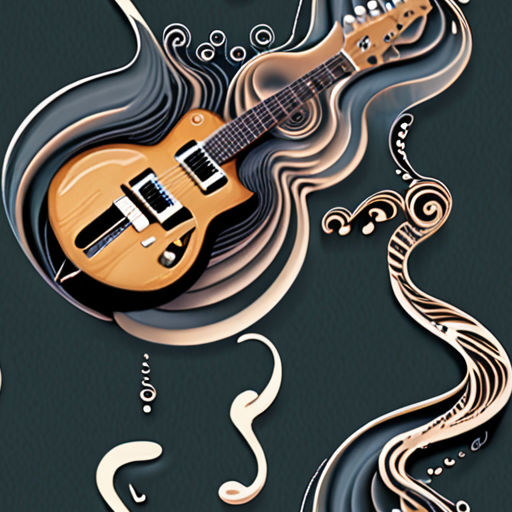
Who is the Best Experimental Guitarist?
We’re often asked who the best experimental guitarists are, and while opinions may vary, we’ve got a rundown of some of the most innovative and influential players in the game.
- Tony Iommi : As the founding member of Black Sabbath, Tony Iommi is widely regarded as one of the pioneers of heavy metal and experimental guitar playing. His use of downtuned guitars and heavy distortion helped shape the sound of the genre.
- Steve Vai : With his incredible technique and versatility, Steve Vai has become a household name among guitar enthusiasts. From his work with Frank Zappa to his solo career, Vai has consistently pushed the boundaries of what’s possible on the instrument.
- Robert Fripp : As the guitarist for King Crimson, Robert Fripp has been experimenting with unusual tunings and effects for decades. His work with Frippertronics, a device that allows him to record and play back loops of himself, has influenced countless musicians.
- Lee Ranaldo : A founding member of Sonic Youth, Lee Ranaldi is known for his innovative approach to guitar playing. He’s experimented with everything from feedback and distortion to prepared guitar and extended techniques.
- Bill Frisell : With his unique blend of jazz, rock, and country influences, Bill Frisell has become one of the most respected and sought-after guitarists in the industry. His use of effects pedals and unconventional playing styles has inspired a generation of musicians.
These individuals have all made significant contributions to the world of experimental guitar playing, and their influence can still be heard today. Whether you’re a seasoned musician or just starting out, studying the work of these innovators can help take your playing to the next level.
The Future of Experimental Guitar
As technology continues to evolve, we can expect to see even more innovative approaches to guitar playing emerge. From digital signal processing to advanced effects pedals, there are endless possibilities for experimentation and creativity.
Conclusion
In conclusion, the best experimental guitarists are those who continue to push the boundaries of what’s possible on the instrument. By studying the work of innovators like Tony Iommi, Steve Vai, Robert Fripp, Lee Ranaldi, and Bill Frisell, we can gain a deeper understanding of the art of experimental guitar playing and inspire our own creative expression.

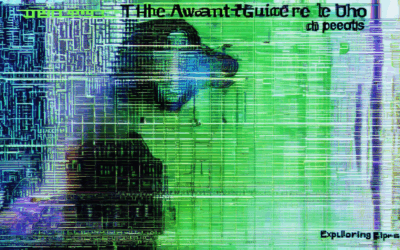


0 Comments